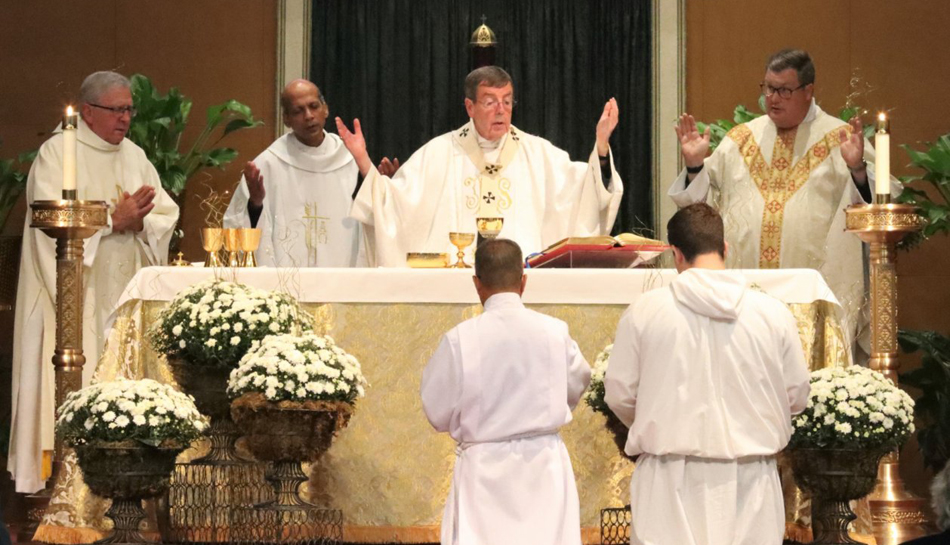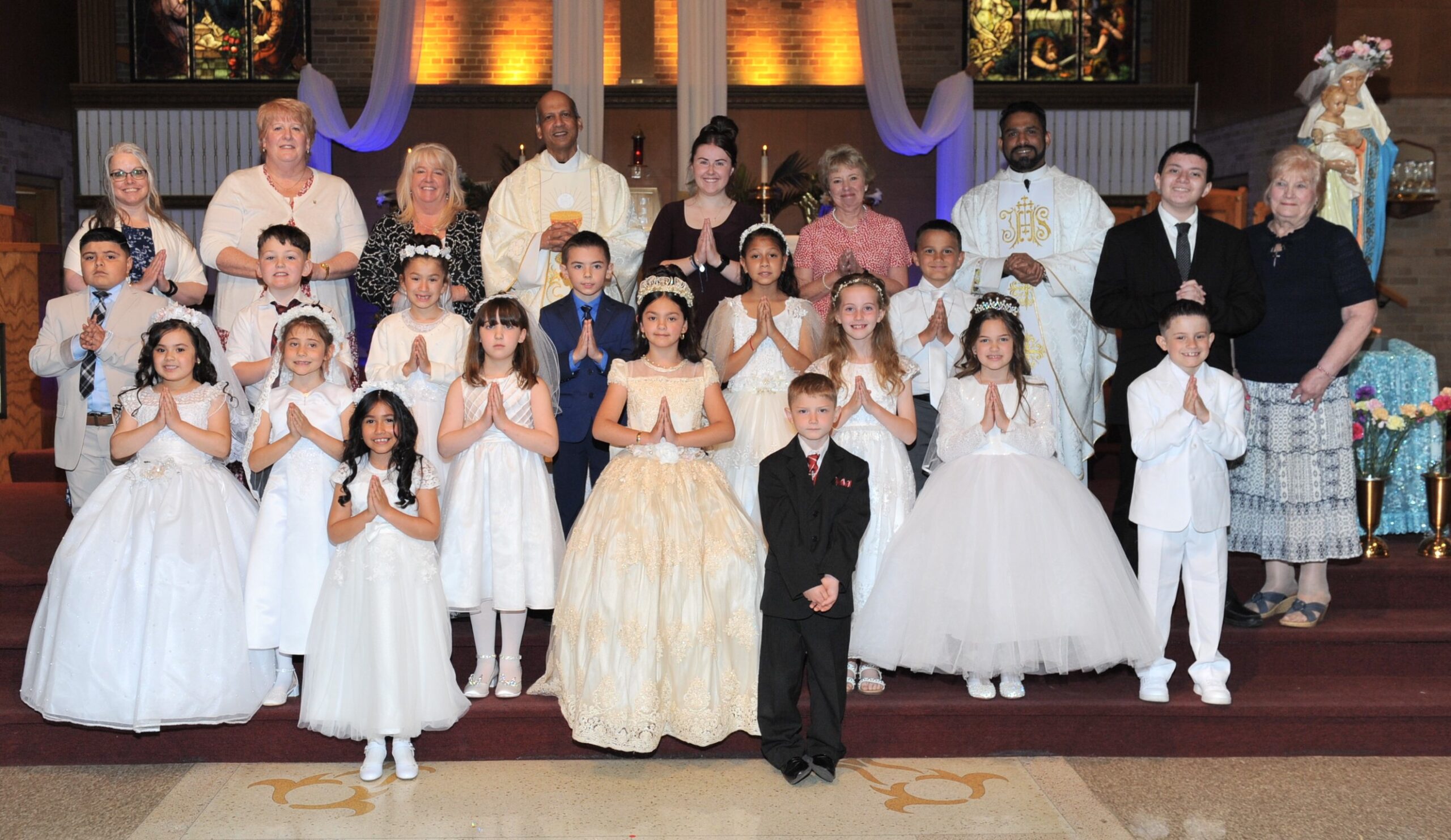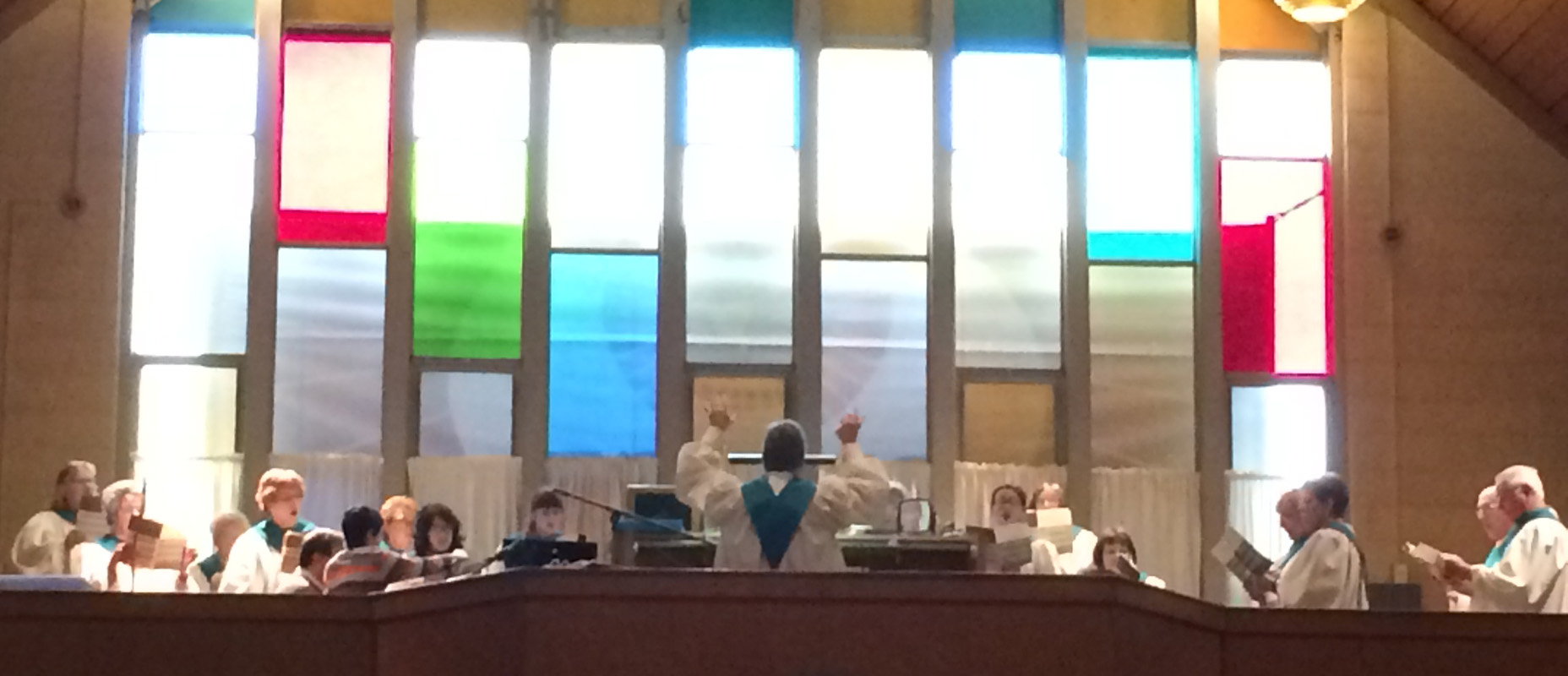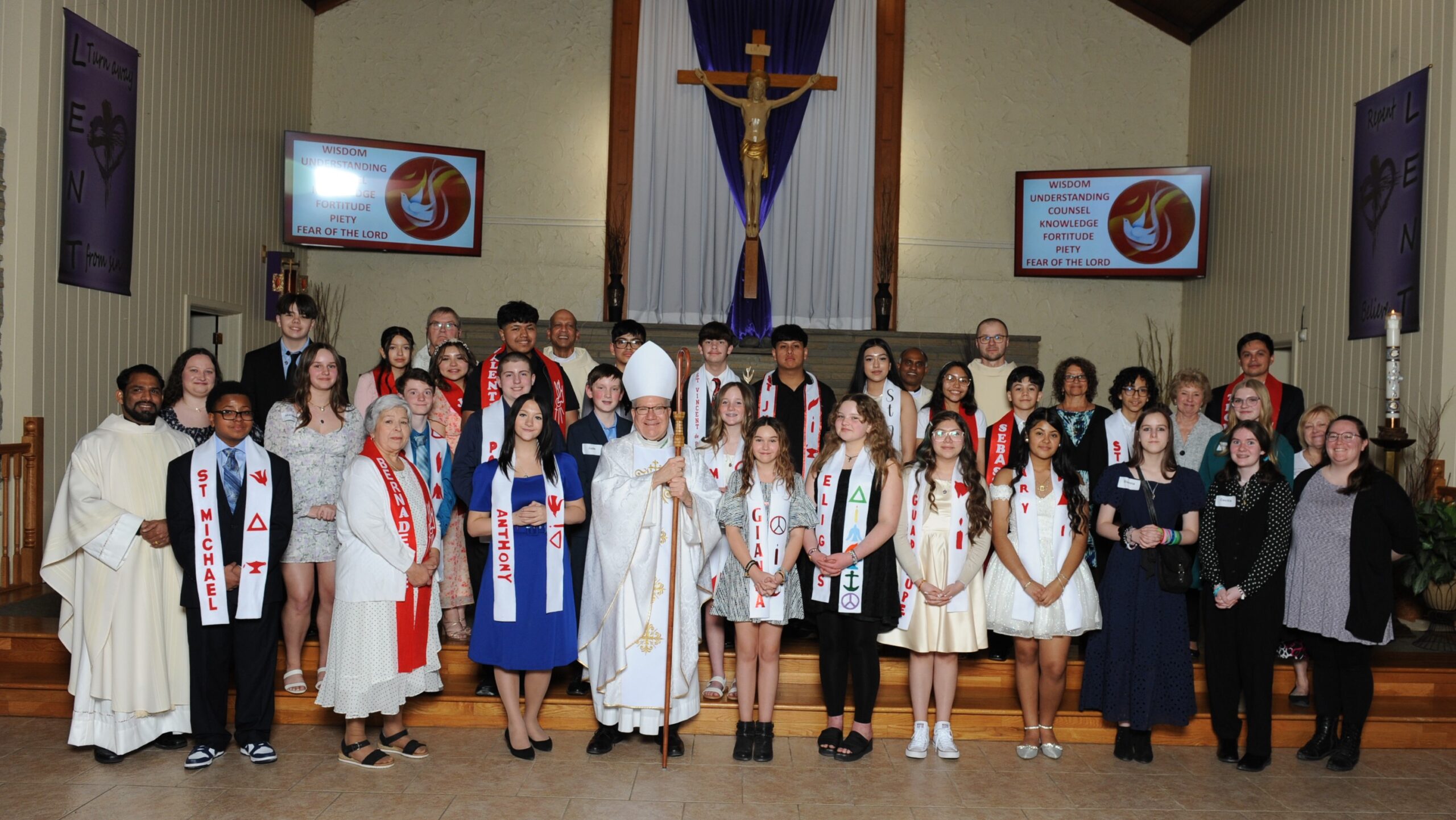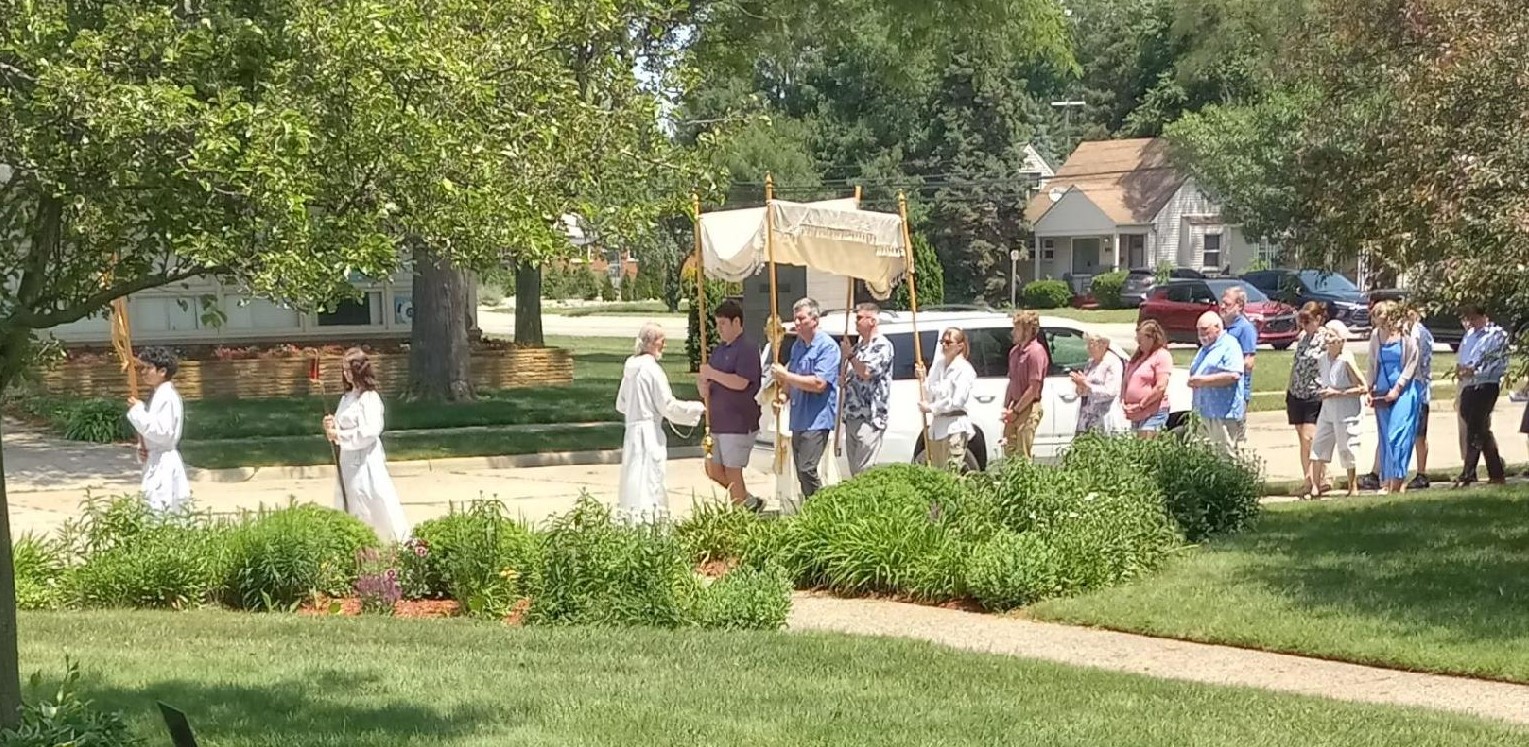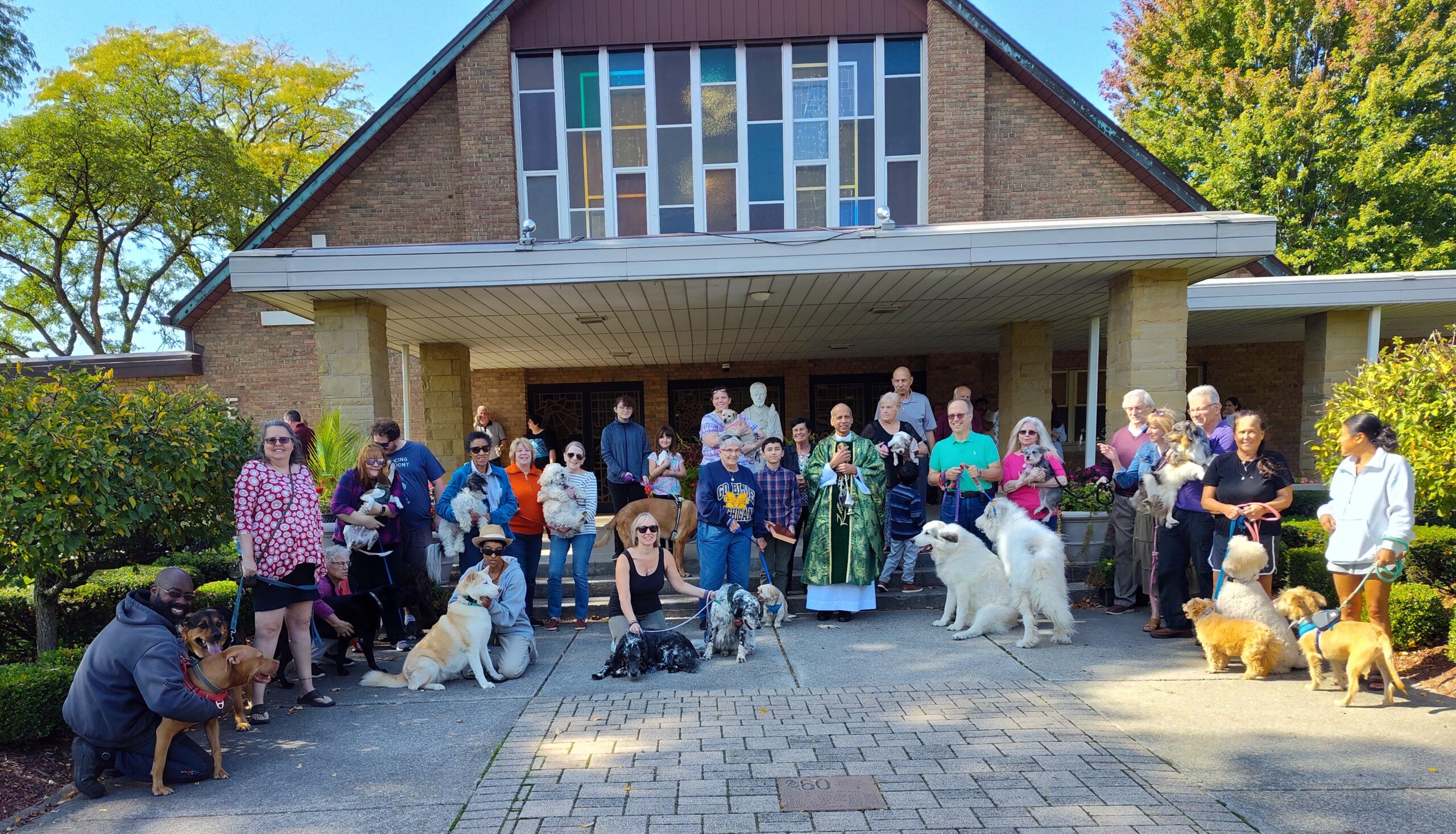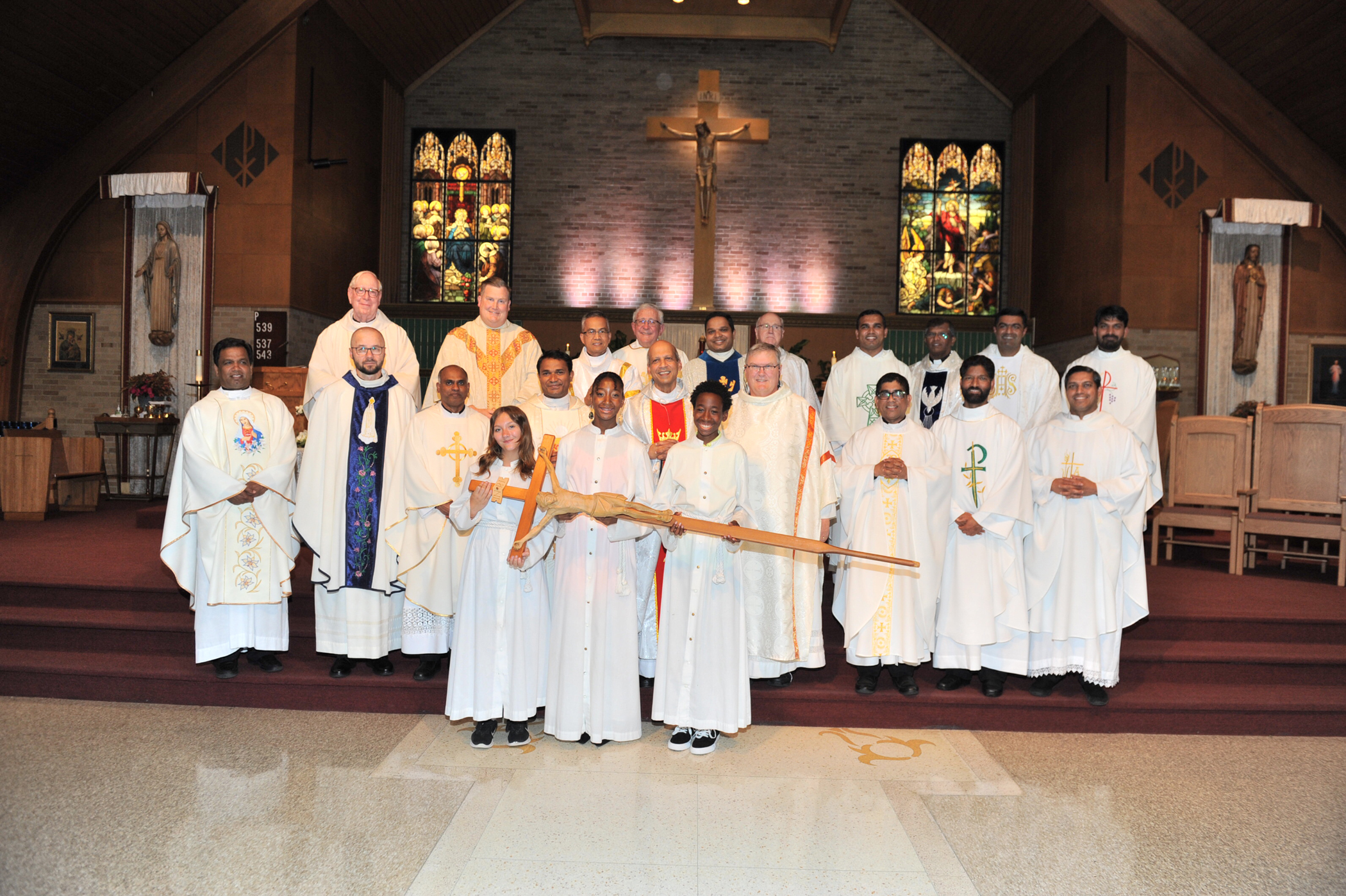Catechists from the School, Faith Formation Program, The Word for Little Ones and Baptismal Teams gathered on Sunday, September 22nd for a blessing on Catechetical Sunday
Blanket Drive for the Salvation Army
 As in years past the St. Valentine Christian Service Commission will be conducting a blanket drive during the month of October. The blankets will go to the Salvation Army Dearborn Division. They have been very grateful in the past, and are eagerly awaiting our donations this fall. Here is an excerpt from a past thank you letter from the Salvation Army. “The Salvation Army in Dearborn Heights was the recipient of over 40 new blankets. Because of your thoughtfulness we are able to provide a warm blanket to the many homeless persons that are in need.”
As in years past the St. Valentine Christian Service Commission will be conducting a blanket drive during the month of October. The blankets will go to the Salvation Army Dearborn Division. They have been very grateful in the past, and are eagerly awaiting our donations this fall. Here is an excerpt from a past thank you letter from the Salvation Army. “The Salvation Army in Dearborn Heights was the recipient of over 40 new blankets. Because of your thoughtfulness we are able to provide a warm blanket to the many homeless persons that are in need.”
You can drop off your contributions in the baskets provided at all Church entrances. Please help if you can.
Your Christian Service Commission
Fun Run Walk Thank You
Fun and Sun were in the air as we began the race with 262 participants at 3.00 pm on Sunday the 18th of September. You never know what the weather is going to be when one plans well in advance, but we were blessed. We need to thank the Lord for blessing us with a perfect day.
Hats Off to the Organizers of the 11th Annual Fun Run/Walk and Spaghetti Dinner, Bonnie Danic and Jim Soter along with their spouses John and Patty have been organizing this Fun Run for the past 11 years and we had 11 consecutive years of great attendance and participation. I could see the joy in every one from the littlest to the young at heart, be it runners, walkers, course marshals, those who prepared and served the meals – and even those who just came to be part of the Fun by joining us for the Spaghetti Dinner, everyone was just happy to be part of the Fun Run. It was also great to see the community coming together. The specially designed T-Shirts were very much recognized by all who drove by or passed by. Thanks to each and everyone who has been part of this great parish event.
Without the generous contributions and co-operation of a number of organizations, neighborhood businesses and the volunteers, the Fun Run would not be possible. Thank you again to everyone who contributed to make the 2016 Fun Run such a successful evening and, of course, to all who participated in the race.
Congratulations to the following winners: We send our congratulations to the following winners. Male Overall Results:1st place Samuel Tapia 19:06, 2nd place Dylan Misenheimer 19:43 3rd place Michael Cushman 21:38. Female Overall Results:1st Patricia Murray 21:16, 2nd place, Deb Deren 21:54 and 3rd place Adeline Meyers 21:56. Family & Friends Overall Results: Over all Winners: 1st Place U, Me & E, 1:06:13 Adeline Meyers, Adam Potakowski, Erin Hegerty & Mike Hegerty 2nd place C.M. Munchkins 1:13:43 Christopher Parsell, Addison Parsell, Lindsay Parsell, Meghan Ford, Cadie Surato, Gracie Surato & Keegan Parsell 3rd place Borgus-Hall 1:25:59 Anthony Hall, Christina Hall, Sheena Hatcher, Rebekah Coleman & Bryce Borgas Senior Shuffle Division: 1st place Leo St. Amour 31:36, 2nd place Raymond Mote 36:35 and 3rd place Jerry Lenius 40:53.
Fr. Socorro
Participant Race Results
We will have a few packets at the doors of the church with the results of the race. If we happen to run out of packets, please give the parish office a call and I will send you one. You may also go on line to view the results. Please visit Everal Race management at
http://www.everalracemgt.com/results/full.php/st-valentine-5k-run-walk-7.html.
In closing we want to thank John and Patty for their encouragement, Fr. Socorro and Fr. Henry for their support and all the parishioners for their willingness to participate. We hope everyone enjoyed the day as much as we did!
Jim Soter
Bonnie Danic

